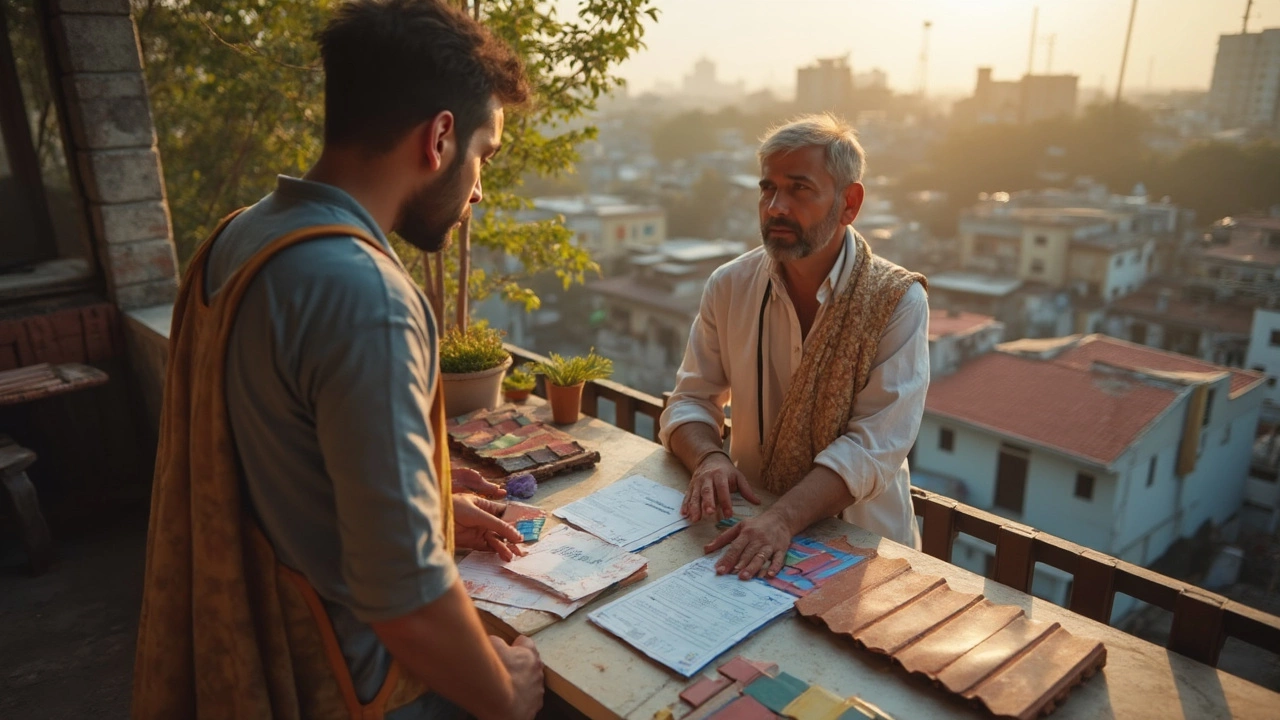Roof Negotiation: What You Need to Know Before Signing a Contract
When you're dealing with a roof negotiation, the process of discussing terms, pricing, and scope with a roofing contractor before work begins. It's not just haggling over dollars—it's protecting your home, your wallet, and your peace of mind. Too many homeowners skip this step and end up paying more, getting lower-quality materials, or stuck with work that doesn’t last. A good roof negotiation means you walk away with clear terms, documented warranties, and a contractor who actually listens.
Roofing contract, the legally binding agreement between you and the contractor that spells out materials, timeline, payment schedule, and cleanup responsibilities is where things go wrong if it’s vague. Look for specifics: What brand of shingles? What underlayment? Who handles debris removal? Is there a labor warranty? If it says "premium materials" without naming them, walk away. The same goes for timelines—if they won’t give you start and end dates, they’re not organized enough to handle your roof.
Roof repair costs, the actual price you pay for fixing leaks, replacing damaged sections, or full replacements, which vary by region, material, and roof complexity can swing wildly. One contractor might quote $8,000 for a full tear-off; another says $12,000. That’s not always about quality—it’s about transparency. Ask for line-item breakdowns. Compare apples to apples: same shingle type, same underlayment, same disposal fees. Don’t let them hide costs in "miscellaneous" fees.
And don’t forget roofing contractor, the professional you hire to install or repair your roof, whose licensing, insurance, and reputation matter more than their sales pitch. A cheap quote means nothing if they’re not insured. If they get hurt on your property and don’t have workers’ comp, you’re liable. Check their license number online. Read reviews from the last 12 months—not just the five-star ones. Ask for photos of past jobs, especially ones that looked like yours.
Timing matters too. Roofers are busiest in spring and early summer. If you wait until after a storm hits, prices spike and schedules fill up fast. The best deals often come in late fall or early winter when demand drops—but only if your roof isn’t leaking yet. A good contractor will tell you when to act, not just push you to sign right now.
Finally, know your limits. Some roof issues need a structural engineer, not just a roofer. If your roof is sagging, or you’ve got water damage in multiple rooms, that’s not a simple repair. It’s a sign of deeper problems. Don’t let a contractor downplay it just to get the job. Ask: "Would you do this work on your own house?" If the answer isn’t a clear yes, dig deeper.
What you’ll find below are real stories, cost breakdowns, and hard-won lessons from homeowners who’ve been through roof negotiation—and came out ahead. No fluff. No hype. Just what actually works when your roof is on the line.





